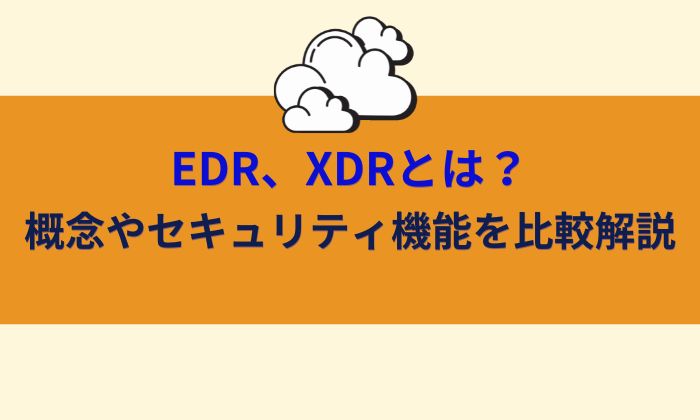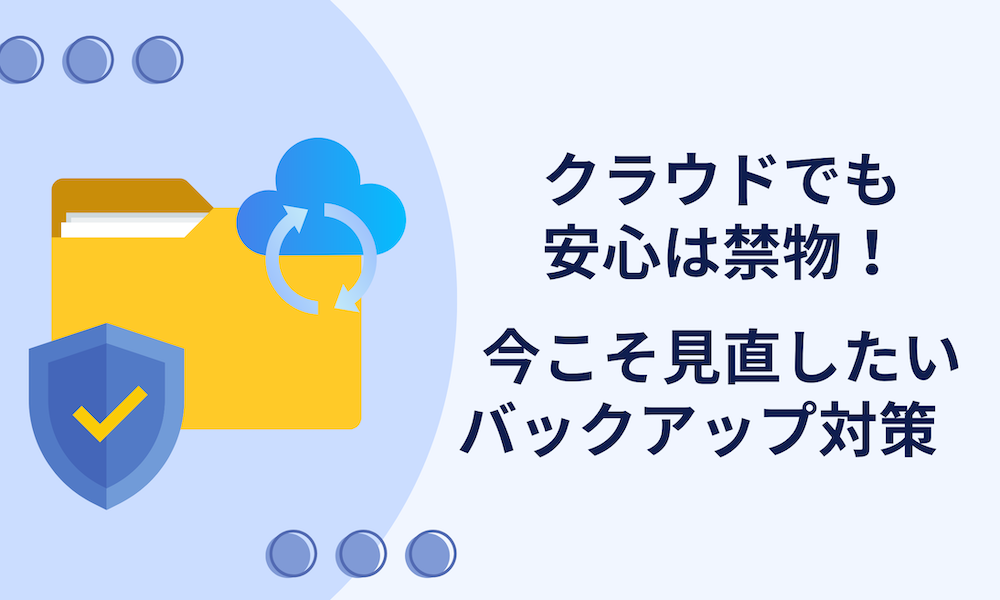According to a white paper on information and communications (FY 2020) by the Japanese Ministry of Internal Affairs and Communications, 64.7% of companies use at least some form of cloud services, a dramatic increase from 44.5% in 2015. As this percentage is expected to continue increasing in the future, in our most recent article, we will examine the reasons that cloud computing has become an indispensable business tool, its background, and the basics of how to use it.
What is file sharing?
The fundamental concept of cloud computing, to put it simply, is file sharing. While almost everyone has read or heard the phrase before, let's reconsider what it means.
Previous Trends
File sharing, as the name implies, refers to the sharing of a file or folder between multiple users (such as other computers) for editing. Although file sharing has been used for some time in offices, it was mainly done on Windows, Mac, and other operating systems, and mainly shared within local area networks (LAN).
Future needs for cloud computing
However, as mentioned at the beginning of this article, cloud computing is becoming the primary method of sharing files, and the demand will continue to grow for the following two reasons:
1. Increasingly larger file sizes
In the past, the most common way to send a file was as an email attachment sent via LAN. However, large and larger files, such as images and videos, are shared for collaboration and can easily exceed the size limit for email attachments.
When using the cloud to share, there is no file size limit. Files can be saved on the computer in the cloud and a link sent to another person via email or chat message, allowing them to access it.
2. Increasing demand for remote work-related online collaboration
According to the Tokyo Metropolitan Government Bureau of Industrial and Labor Affairs, the April 2021 remote work implementation rate for companies in Tokyo (with 30 or more employees) was 56.6%. Remote work, which was quickly introduced in reaction to the COVID-19 pandemic, has led to a decrease in physical office-based work and an increase in online collaborative work. Accessing the company server for file sharing or exchanging files via USB memory stick or external hard drive in the office is easy when employees are in the office. However, remote work requires different solutions, and cloud storage and file sharing services are becoming essential, regardless of the device or location. Also, new ways of working, such as "Workcation," a combination of vacation and work, are becoming popular. In order to be able to work anytime and anywhere with just a laptop, the use of the cloud is absolutely essential.

Advantages of cloud file sharing
As discussed above, the cloud allows file sharing regardless of the file size, the number of users, or location. The most attractive feature is that it frees you from the time and space limitations of the past and provides much more flexibility. Here are some other advantages of cloud file sharing:
・Data centralization
When sharing files via email or USB flash drive, any edits or updates must be returned with the same system. With repeated changes and exchanges, it is possible to lose track of the most current files, and mistakes can occur. However, with files stored in the cloud, all users will always have access to the latest version.
・Cost and labor reduction
Preparing, building, and maintaining internal servers requires not only money but also human resources. As the amount of data increases, it will be even more expensive to add more servers. In this regard, cloud services can be implemented at a low cost and with less time and effort of in-house maintenance and inspection. In addition, if a service with unlimited users (additional capacity can be purchased anytime) is chosen, you can flexibly adjust plans as your business grows and continue using secure and safe services.
・Effective BCP and DR measures
The COVID-19 pandemic has tested the ability of companies to respond to emergencies, which is especially relevant in Japan, where natural disasters are more common, it is important to always be prepared with an effective business continuity plan (BCP). If you rely on your own file server, there is always a possibility of data loss or damage to physical assets in the event of a disaster. However, a cloud service can be a much safer option especially if the data center is located in an area with a low risk of disaster.

Disadvantages of cloud file sharing
While there are many advantages to cloud file sharing, there are some issues to consider:
・Security concerns
Security is a common worry in regards to cloud file sharing. With company LANs, networks are built with a limited range and access. However, with cloud computing and its connection to the Internet, there is a small possibility that data and systems could be compromised. In this regard, cloud service providers implement various security measures including encryption or strong authorization systems. It’s important to compare the options and choose a service with stronger security measures.
・Limited customization
By building and maintaining your own servers, it is possible to design and customize them in detail, and if a problem occurs, your in-house staff can immediately investigate and respond appropriately. However, with cloud computing service providers and their scope of service, detailed responses and complete customization to meet the specific needs and circumstances of clients may not be available.
Tsukaeru FileBako: easy and efficient!
Tsukaeru FileBako maximizes the advantages of cloud file sharing while minimizing the disadvantages.
With a laptop, tablet, or smartphone, you can quickly and easily start remote working with the ability to access all your files and data from any location. Everything can be edited and organized in the cloud, and unlimited files and folders can be shared with other users using web links. There are also flexible storage options depending on your needs. Tsukaeru provides excellent security measures, including two-factor authentication, encryption, logging, and an ISO certified data center to protect your valuable data and systems.
For unlimited users, the cost starts at 9,800 JPY (10,780 JPY including tax), and our 14-day free trial allows you to try out Tsukaeru FileBako worry free!
“First Time Contract” campaign for Tsukaeru FileBako is now in effect until June 30 (Wednesday)!
The longer the contract, the more you save - with discounts of up to 300,000 JPY or more!
For more details about the campaign, please contact us via the “Contact Us”button below.
Click here for more information on Tsukaeru FileBako.

Call toll-free: 0120-961-166
Office hours: 10:00-17:00





















